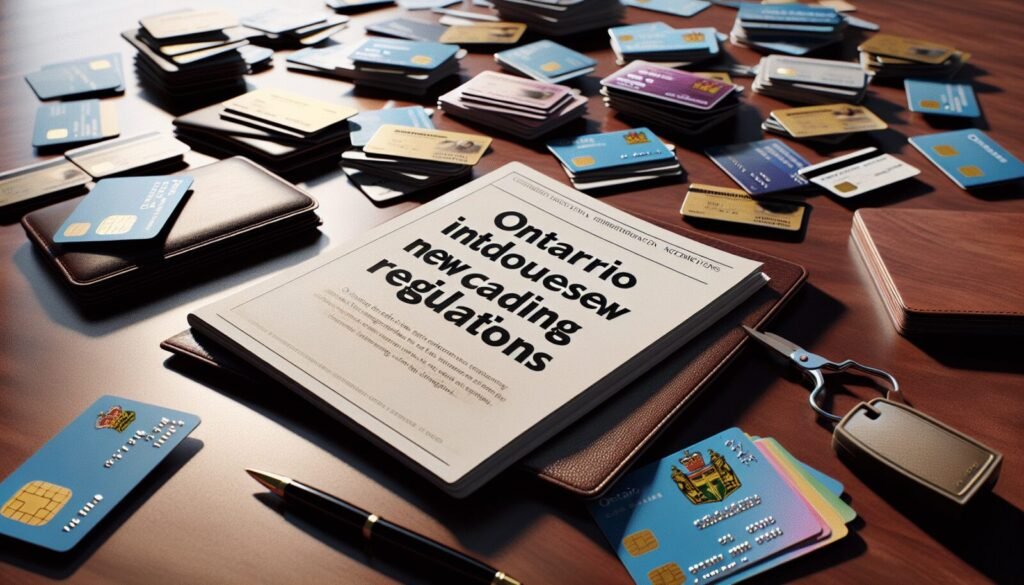Ontario introduces new carding regulations

In recent years, the issue of police conduct during street checks, commonly referred to as carding, has gained significant attention in Ontario. The provincial government has taken steps to address concerns about civil liberties and educate the public about their rights when interacting with law enforcement. Understanding these new regulations is crucial for citizens to ensure their rights are protected, especially in cities like Toronto, Ottawa, and Hamilton.
- Understanding the New Guidelines for Police Conducting Street Checks
- Case Study: The Marcel Blackburn Incident
- Exploring the Effects of Police Misconduct on Community Trust
- The Right to Refuse: Legal Implications in Ontario
- What You Should Know About Carding Laws in Canada
- What Happens if You Feel Your Rights Are Violated?
- Conclusion: The Importance of Ongoing Education and Awareness
Understanding the New Guidelines for Police Conducting Street Checks
As of January 1, 2017, Ontario has implemented stringent guidelines regulating how police conduct street checks. These rules are designed to protect citizens from arbitrary and discriminatory practices. To request identification from a person, police must adhere to the following criteria:
- Have a valid reason. This reason cannot be based on:
- Race
- Arbitrariness (lack of meaningful justification)
- Presence in a high-crime area alone
- Previous refusal to answer questions or walking away
- Provide an explanation for why they are requesting identifying information.
- Inform individuals that they have the right to refuse to provide identification.
- Offer a receipt that includes:
- The officer's name
- The officer's badge number
- Contact information for the Office of the Independent Police Review Director, which addresses police complaints
- Details on how to access personal information held by police about the individual
- Maintain detailed records of the interaction, even if the individual refuses to provide information.
Despite these regulations, incidents of police misconduct continue to surface, raising concerns about the effectiveness of these guidelines. A notable case involved Marcel Blackburn, who was acquitted of charges related to police conduct deemed aggressive and abusive by the presiding judge.
Case Study: The Marcel Blackburn Incident
In December 2015, Marcel Blackburn was pulled over by police for allegedly making a right turn on a red light without stopping. The interaction escalated quickly and was captured on video, although critical audio moments were missing due to the officers turning off their microphones. Justice Sandra Bacchus later ruled that the initial lawful detainment became unlawful due to the aggressive behavior exhibited by the officers.
Throughout the encounter, Blackburn was calm and respectful, voluntarily offering his documents. However, the officers accused him of fidgeting suspiciously and threatened him with physical removal from his vehicle. Justice Bacchus highlighted that the traffic stop was a pretext designed to investigate Blackburn’s presence in an area perceived to be high in criminal activity.
This case illustrates a broader issue concerning police interactions and the potential for rights violations. If officers do not respect the rights of individuals during these encounters, the guidelines meant to protect citizens become meaningless.
Exploring the Effects of Police Misconduct on Community Trust
The ongoing dialogue about police conduct often encounters a defensive response: the notion that only a few officers are responsible for misconduct. While it is true that most officers are dedicated to serving and protecting their communities, the actions of a few can significantly tarnish public trust in law enforcement as a whole.
In Blackburn's case, the officers involved did not intervene to correct inappropriate behavior, and their collective actions undermined the integrity of the police force. This raises critical questions about accountability and the systemic issues within policing that allow misconduct to persist.
The Right to Refuse: Legal Implications in Ontario
In Ontario, individuals have the right to refuse to give identification to police officers under certain circumstances. Understanding when and how to exercise this right is vital. Key points include:
- Individuals are not obligated to answer questions or provide identification unless specifically required by law, such as during a traffic stop.
- Exercising the right to silence should not lead to arrest or charges, as long as the individual has not committed an offense.
- It's essential to remain calm and respectful when declining to provide information to avoid escalation.
What You Should Know About Carding Laws in Canada
The practice of carding has been controversial across Canada, with many provinces implementing their regulations to curb potential abuses. The Ontario guidelines aim to create a more accountable and transparent process for police interactions with the public. However, challenges remain as enforcement and adherence to these guidelines vary among different police services.
In cities like Brampton and Mississauga, community members have expressed concerns about racial profiling and discriminatory practices in carding. The provincial government’s commitment to reform will require ongoing monitoring and evaluation to ensure that citizens' rights are respected and upheld.
What Happens if You Feel Your Rights Are Violated?
If an individual feels their rights have been infringed during a police encounter, there are steps they can take to seek recourse:
- Document the encounter, including officer names, badge numbers, and any witnesses.
- File a complaint with the Office of the Independent Police Review Director (OIPRD).
- Consult with a lawyer experienced in civil liberties or police misconduct cases.
Understanding your rights and the mechanisms available for addressing grievances is crucial in fostering a culture of accountability and respect between law enforcement and communities in Ontario.
Conclusion: The Importance of Ongoing Education and Awareness
As Ontario continues to evolve its approach to policing, the significance of educating the public about their rights cannot be overstated. Initiatives to raise awareness about new street check regulations serve as a foundation for empowering citizens. Only through informed engagement can communities work with law enforcement to build trust and ensure accountability.
Interested in similar topics to Ontario introduces new carding regulations? Explore more in the Local DUI Laws and Services category.

Leave a Reply